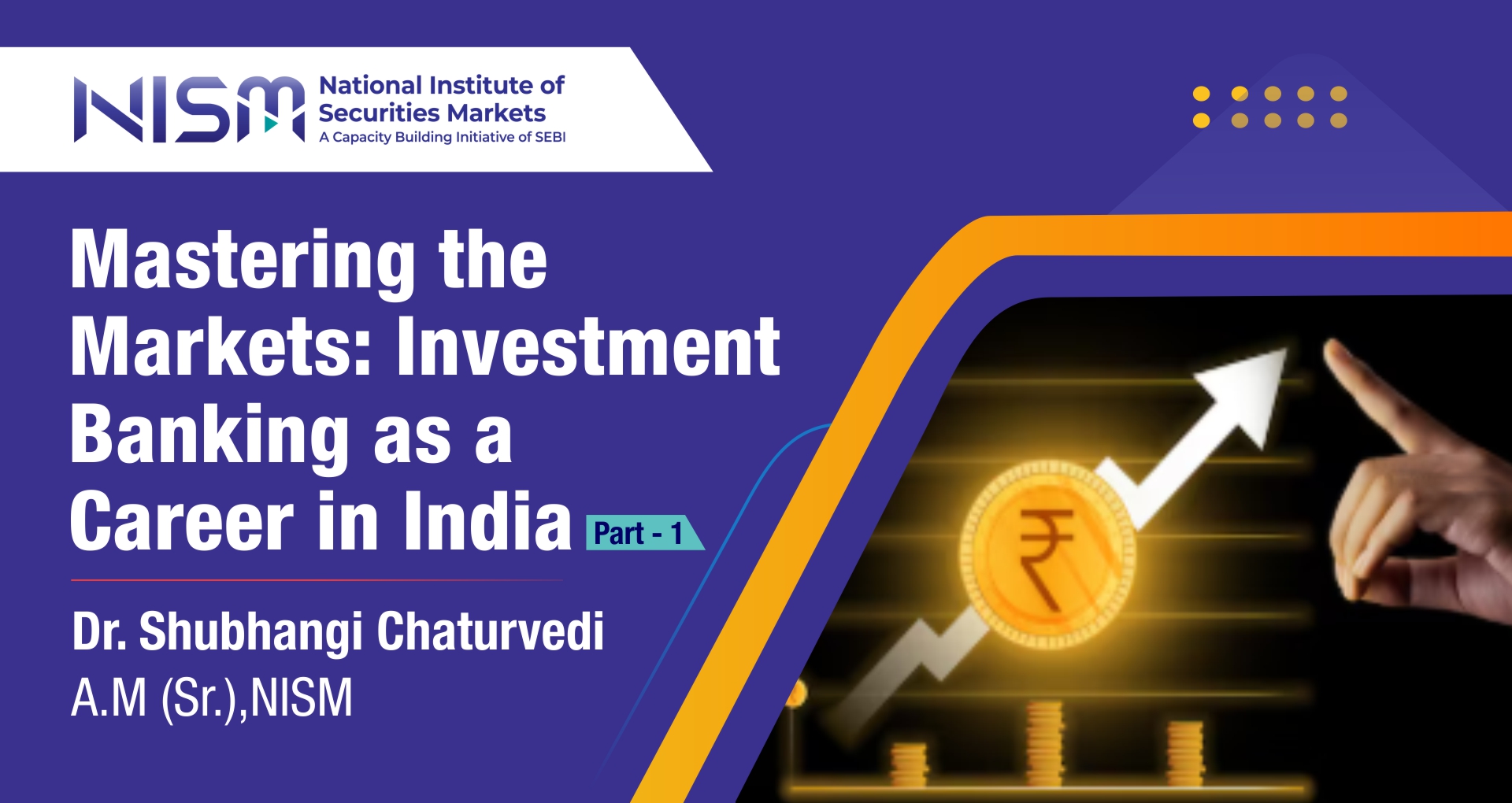
1. Introduction: The Catalyst Behind Capital Allocation
Investment banking occupies a central position in the modern financial system, guiding firms through mergers and acquisitions, arranging both debt and equity financing, and crafting bespoke financial structures. In an information-rich global market, these banks analyze vast datasets to inform every deal, weighing risk, precise valuation, and long-term strategy.
For driven graduates, the sector promises challenging analytical work, visibility on landmark transactions, and a front-row seat to India’s economic transformation, all of which enrich professional development and personal ambition.
2. Why Build a Career in Investment Banking?
Investment banking sits at the core of modern finance, guiding firms through initial public offerings, mergers and acquisitions, debt placement, and organizational refinancing. With India’s goal of reaching a 30-trillion-dollar economy by 2047, these bankers will be essential in channeling capital and structuring transactions that support that ambitious expansion.
3. Skills, Education & Certifications:
Table 1
Key Skills, Education, and Certifications for Investment Banking Careers Sector
| Category | Key Requirements |
|---|---|
| Education | International structuring and compliance |
| Certifications | NISM Certification Exams, NISM E- Learning Courses, CFA, Financial
Modelling Courses |
| Technical Tools | Excel, Python/R, Bloomberg, PowerPoint |
| Soft Skills | Negotiation, Presentation, Financial Storytelling |
| Regulatory Awareness | SEBI regulations, RBI frameworks, FEMA norms |
Note: This table outlines essential qualifications and tools that support career development in investment banking.
4. Career Pathway: Roles by Experience
Table 2
Career Pathway in Investment Banking by Experience Level
| Category | Role | Responsibilities |
|---|---|---|
| 0–2 yrs | Analyst | Valuations, Models, Market Scans |
| 2–5 yrs | Associate | Client Pitches, Deal Execution |
| 5–10 yrs | VP/Director | Origination, Negotiations |
| 10+ yrs | MD/Partner | Leadership, Strategic Direction, Public Presence |
Note: Career progression in investment banking typically moves from analytical support roles to client-facing, strategic leadership positions.
5.Top Employers in India:
6. Conclusion: Is IB the Right Career for You?
If you are intellectually curious, perform well in demanding settings, and want a role where your analyses literally reshape institutions and markets, investment banking stands out as one of the most consequential paths in finance.
Because India is rapidly positioning itself at the centre of the global economy and because fresh capital is urgently needed for infrastructure, startups, and sustainability projects, the call for well-trained bankers will only grow louder. Focus on solid foundational skills, seek out experienced mentors and earn credentials such as the NISM Certification in Investment Banking, CFA Charter and financial-modelling badges you can open a door to work that combines numbers, influence, and societal purpose.
On the long march towards Viksit Bharat by 2047, investment bankers are not merely casting spreadsheets- they are designing the very blueprints that guide the nation forward in wealth and opportunity.
References:
Author: Dr. Shubhangi Chaturvedi, A.M (Sr)- NISM

The Budget 2026 brought a huge setback for the Sovereign Gold Bond (SGB) investors. Before Budget 2026, all redemptions of…

Volatility risk is well known, but that is usually less dangerous Retirees fear market volatility, and volatility is a risk…

For NISM, 2025 was defined by a renewed commitment to capacity building and investor education. Anchored by our mandate from…
© 2026 National Institute of Securities Markets (NISM). All rights reserved.